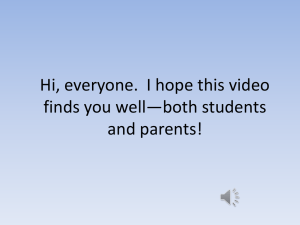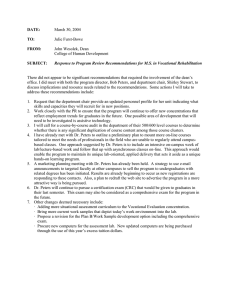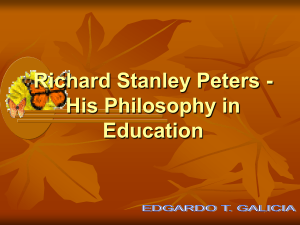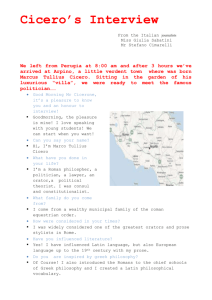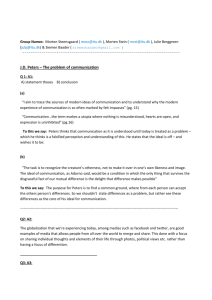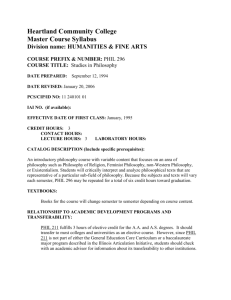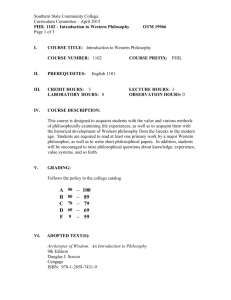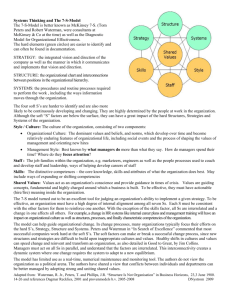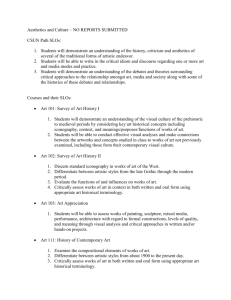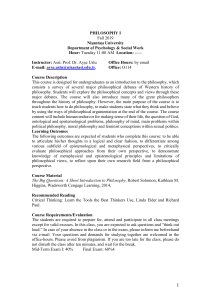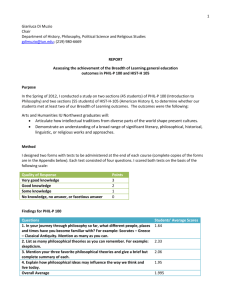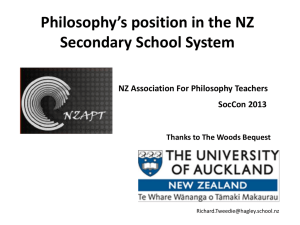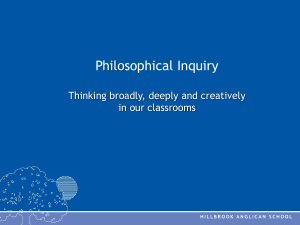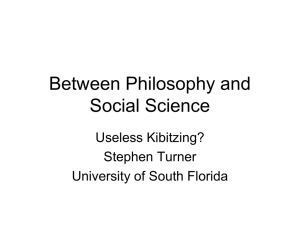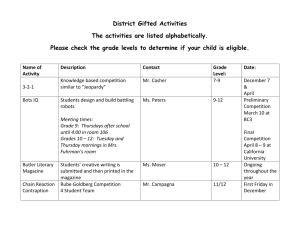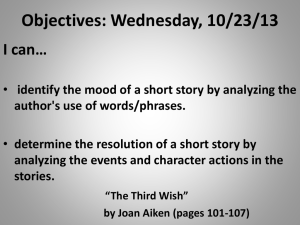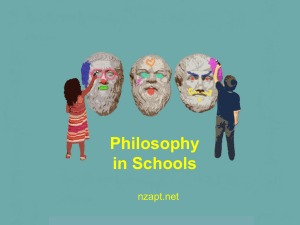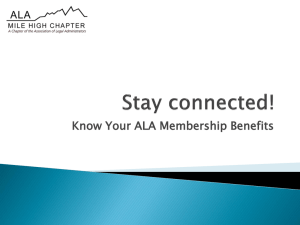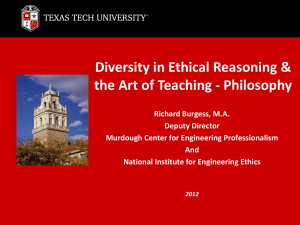Hilary Cooper Presentation
advertisement
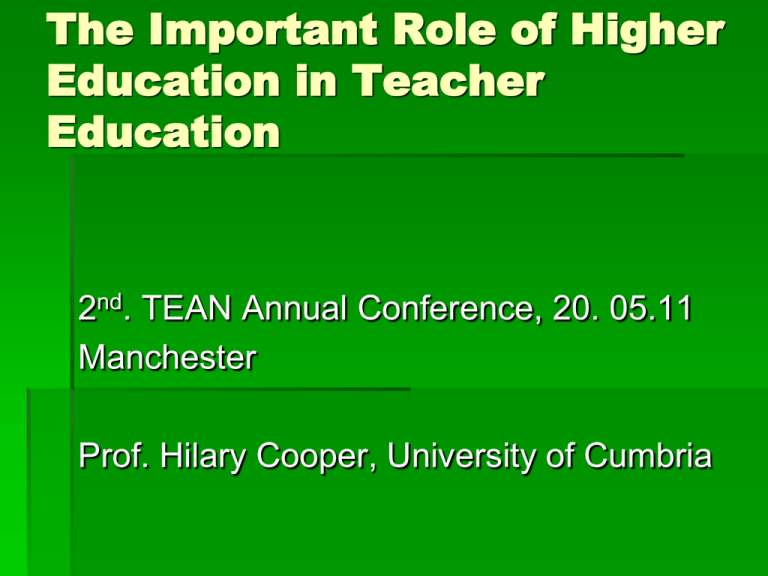
The Important Role of Higher Education in Teacher Education 2nd. TEAN Annual Conference, 20. 05.11 Manchester Prof. Hilary Cooper, University of Cumbria The Importance of the Philosophy of Education and of Understanding WHY and HOW to Engage with it A Matter of Universal Interest! Professional Studies in the Primary School (ed. H. Cooper, Sage 2011) The Wite heat of Masters reform to be recruted from Independunt foundashun skools the army LEEG tables to be SHAKEN up Return of trad learning Wot of the future What questions do educational philosophers ask? How do they discuss them? Why is it important to engage in such enquiries? How can we help students to do this? Q8 Have a creative and constructively critical approach towards innovation, being prepared to adapt their practice, where benefits and improvements are identified. What are the Aims of Education? This is a fundamental philosophical question Teachers have had little encouragement recently to question why, what or how they teach ‘The Basics’ Since the beginning of state education these have been generally seen as central to primary education, but what are ‘the basics’ in the 21st. Century? How can we empower children to find meaning in their lives? Cambridge Review 2010 m p.5 ‘Primary education suffers more than its fair share of scare-mongering and hyperbole, not to mention deliberate myth-making. Isn’t it time to move on from populism and name calling, which for far too long have supplanted real educational debate and progress?’ Children deserve better from the nation’s leaders and shapers of opinion.’ The Long Tradition of Educational Philosophy For over 2,500 years thinkers have been debating what education is, and what it is for. Throughout this period ideas emerged which SHOULD inform political views about the aims and processes of education. Do they? Plato to Rousseau Plato (5, BC) and Aristotle (4c BC) Holistic, balance of practical and theoretical Avicenna (10c CE) Children should discuss, debate and learn from each other John Stuart Mill (1859) Importance of contesting and defending ideas Rousseau (1762) Education is developmental, changes in response to pupils’ needs, children learn by interacting with their environment Spencer to Steiner Spencer (1851) Moving from concrete to abstract Froebel (1895) Learning through play; children. at centre of own worlds Montessori (1914) Children can make decisions for themselves Dewey (1916) Social and moral nature of education, essential to democracy Steiner (1919) Freedom of teachers to shape their own curriculum Peters and Hirst: Peters and Hirst (1960 -70s) asked the same questions as Socrates had asked: What is worth knowing? What do we mean by an ‘educated person? Is the education system fair? Who knows best what children should learn? Is education different from training; teaching from learning? How do you analyse such ‘fuzzy’ questions, which people might understand differently and which have no ‘right answers’? Peters: What do you mean by this question? How do you know? Collect different examples, based on reading and experience Can we find some key principles which allow us to interpret the constantly changing demands being made of us? Hirst, Wright, Rorty (1980s) Agreed that there could be no ‘universal answers’; Peters work was part of an evolutionary approach. They, and subsequent educational philosophes, took a more conversational approach, based on more pragmatic discussion of current issues. Before we ask, ‘what are the aims of education we must ask ‘what are the values of our society? Contemporary Educational philosophy is concerned with: Multiculturalism, identity, education and religion, inclusion, education for citizenship and democracy, the curriculum, educational methods, organisation, assessment, the role of other adults in the classroom, governance, who controls schools, behaviour, personal and social development, the curriculum, moral questions, gender. How does contemporary educational philosophy enable us to achieve our visions within political constraints? •When philosophical discussion becomes a habit it enables us to develop our own practice with integrity •We stop accepting simple solutions to what we know are complex problems •It stops us knee-jerking in reaction to change by allowing us to define and • work towards what we value •It allows us to define what beliefs and values underpin our work and to use these to interpret our responses to change •This constitutes professionalism Philosophical analysis allows us to dissect slogans: Education for ‘democracy’ ‘citizenship‘ ‘equal opportunities’ ‘learning to learn’ ‘collaboration’ Once we do we realize such slogans are not self evident or beyond criticism The Wite heat of reform Independunt foundashun skools Masters to be recruted from •LEEG tables to be shaken up the army Return of trad learningl Wot of the future
